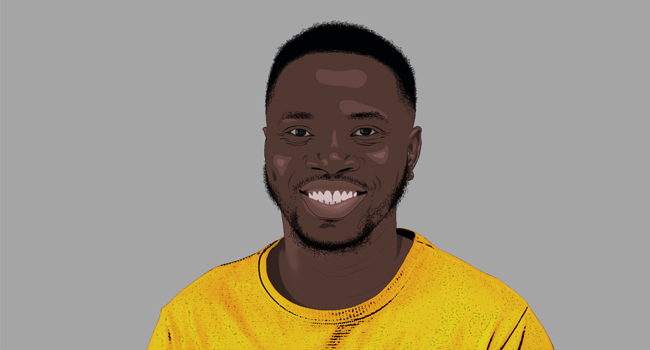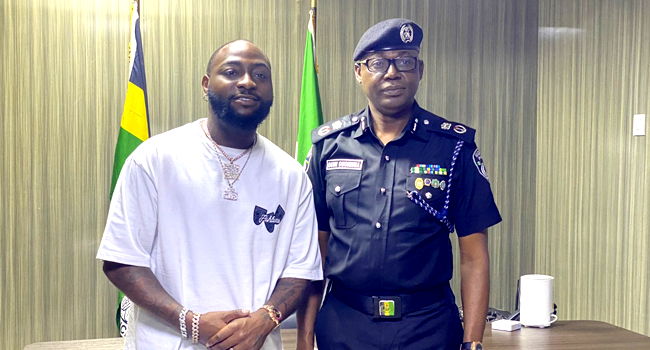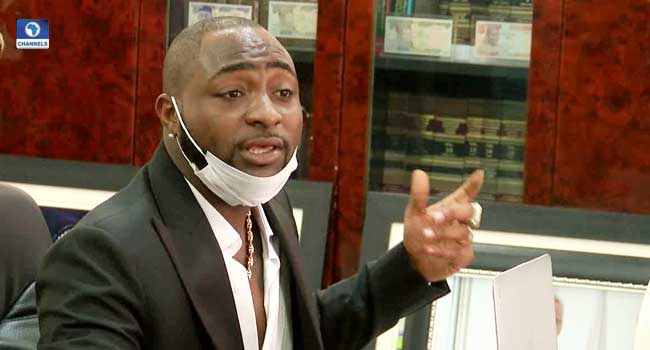
David Adeleke is the founder of Communiqué, a media and tech analysis newsletter with over 24,000 subscribers. Earlier this year, he announced the launch of two other newsletters: Creative Capital and Marketing Forensics to provide better coverage of Africa’s creator economy and marketing trends on the continent. He is bullish about the opportunity to deepen conversations across Africa and is confident that it can be spun into a billion-dollar venture. In this interview, he shares tidbits about his background and career, his goal for Communiqué, and why he hasn’t left Nigeria.
First Class is a column about extraordinary Nigerians aged 35 years and below. It collects their thoughts on what it takes to thrive as a young person in Nigeria.
Do you know someone who fits the bill? Recommend a name here.
Sign up to receive the latest installment of exclusive First Class interviews in your email.
What was it like growing up?
I grew up in a nomadic home. My dad is a pastor, so they moved him around a lot. And because they moved him around often, we had to learn to adapt. I’ve lived in about 18 or 19 different cities in my lifetime. Most of them are in Nigeria. So I’ve learned to adapt to different cultures and lifestyles. Nothing is out of the ordinary because I’ve been privileged to experience a lot. And I think that also makes it easy for me to identify interesting perspectives and viewpoints. And that reflects in my work – first as a journalist when I was one, and now as a communications specialist.
Did you abandon journalism?
Well, I didn’t abandon journalism because my newsletter is about the media. It’s not just the thing I spend most of my time doing anymore.
Why did you choose journalism and communications as a career?
I’ve always wanted to tell stories. I think this is the thing that best fits the way I think, the way I look at the world. So it just makes sense for me; it feels natural.
What’s the grand vision for Communique?
When I started Communique, I wanted to write a column; it was supposed to be a column before it became a newsletter. I wanted to write something that improved the quality of conversation and thinking around the media in Nigeria and, with time, in Africa. I started by looking at the Nigerian audience and gradually zoomed out to look at markets across the continent. For example, people talk about Africa Rising. But what does it really mean? So, I wanted a space to create interesting and nuanced conversations.
Now that I see Communique is successful with media, the next question is, what other industries can this type of analysis serve? Where else can we elevate the quality of conversations? So, that’s how I think about the next phase of Communique. We are launching a marketing newsletter, another one for the creator economy. So what other industries can we explore?
What would success look like?
Success is better conversations. I know that Communique is successful when people are talking about media on the continent and you can tell that they are well-informed. But in a wider context, success is being able to replicate this kind of impact in other industries while making a good living out of it. I would like to be able to do what I love and help more people do what they love if it is similar to what I like to do. My ambition is to build a billion-dollar company, but it will start from somewhere.
A billion-dollar media company?
No, not just the media. The media will be part of it, but there will be other things – technology, gaming, entertainment, and professional services. So when you are talking about African companies that have real influence, you will be able to mention CMQ Media. That’s my big goal. But we have to start from somewhere.
First, we have to prove that the newsletter is profitable, which it already is – the newsletter is making more money than some startups make in a year. And that’s good. But what’s the next step? That’s how we think about it.
Not a lot of attention is being paid to the media business compared to, say, the tech industry. Is that because of a lack of opportunities or a lack of vision?
I think it’s just what is attractive right now. And I also think it is a function of narrative. It’s sexy to be in tech right now. It’s sexy to be a tech entrepreneur even though the work is difficult. So the media has the same problem that Public Relations have. Public relations is good at rendering public relations services to other industries apart from itself. The media is great at telling stories about other industries apart from itself. And it is now affecting the way media entrepreneurs are perceived.
What would you tell someone just out of school and who wants to delve into journalism or communications?
I’ll speak first for journalism. There’s a gap for journalists who demonstrate an understanding of the media business. What you have are journalists who understand journalism. They are good and competent at it, but you don’t have a lot of journalists on the continent who understand the media business or the business of news. Or maybe they do but they don’t show interest. What I would tell someone finishing school and who wants to go into journalism is, go ahead and do it. Be a great journalist. Chase interesting stories. High value, high stake stories. At the same time, understand the industry you are getting yourself into. Understand the history of the industry, understand how things have changed over time and how things are changing. I think that’s going to give you an edge. If you can demonstrate the ecosystem or the dynamics of the industry within which you are operating – then a lot of people will be paying attention to you, looking up to you. It doesn’t matter how long you’ve been doing it. I wasn’t a journalist for up to 10 years but I can write authoritatively about the business because it was something I was actively thinking about as a journalist. If you are going into an industry, figure out ways to get yourself to stand out. Understand what makes people stand out and do the same.
For communications, it’s the same advice. But don’t forget that you really need to invest in yourself. You need to be good at what you do. So, it’s not a case of positioning, meanwhile you are empty. Position yourself properly, but make sure that there is more than enough substance. If someone sees all that glittery about you and they move close, they should still see that you are glittery.
What do you consider the biggest factor that has helped you to be successful?
Would I even call myself successful? Not yet, because I’m not where I want to be. But what I will say has helped me so far in my career is that I’m willing to take career risks. If you look at my CV, you will see that. I’m really hungry for knowledge, but not just any kind. I’m hungry for knowledge that makes me stand out. I’m very deliberate about standing out. I don’t even hide it. I’m not going to be falsely modest and say it’s by accident. If people see my work and they can tell it’s different, it’s because I was deliberate about making a difference. And then I’m also particular about doing high quality work. I don’t care how long it takes me. I don’t like rushing. I like to take my time to learn things, to get things done.
What do you mean by taking ‘career risks’?
If I feel like I’m not learning, like I’m not appreciated, I’m willing to leave. I’m willing to take pay cuts, just so that I’m learning properly. If I’m not learning at a job, I’m going to leave. It doesn’t really matter if it affects my stability. Sometimes that rubs off on people the wrong way but I only have one life to live. I will take any risks necessary to get to where I think I need to be.
What are some of the mistakes you’ve made in your career?
I think the biggest mistake I’ve made in my career is not optimising for higher pay earlier. I should have been more particular about my pay earlier in my career. I used to do a lot of things for free – I still do a lot of things for free – but I’m wiser now. I’m not saying that it’s bad to do things for free or that it’s okay to have money as your god, but there’s a balance. I just wish I optimised earlier than I did. I think I’ll be in a much better position than I’m in now, which is not to say the position I’m in right now is bad, it’s not bad at all.
How can people avoid that trap?
I can’t speak for other people, but I know, for example, that there are certain jobs I would not have taken. I probably would have left journalism earlier. There are certain roles I would not have moved into or certain offers I would not have accepted if I was concerned about what I was earning.
What’s your most controversial idea for getting ahead?
I don’t think it’s controversial because many people do it. I don’t believe in the idea that the workplace is your family. It’s nonsense because companies will fire you when they get the chance; it doesn’t matter who you are. So, I think people should be more cut-throat. I’ve been very cutthroat in my career. I know I’ve made a few enemies along the way. But I’m at peace with it. If you feel like this is the right move for you to make it, please go ahead and make it, whether you are offending someone or not. It doesn’t mean you should be a douchebag, but whether you like it or not, some people will think you are one. So you might as well just do it as long as it is not illegal and it is for your good.
Also, optimise for international exposure quickly. It helps a lot.
Do you ever think of leaving Nigeria?
Who doesn’t? There’s no country in the world that is attractive to me yet. And I’m not actively searching. Of course, I’m not happy with the country’s situation, but I can’t just leave. This is the only country where I’m a first-class citizen.
To make Nigeria better, I think more young people should be active in politics. I’ve become actively involved in politics since the last year.
You are voting next year.
Definitely.
What book would you recommend?
I don’t have a favourite book, but I have books that have changed my life. I like The Pursuit of God by A.W. Tozer. It has helped my faith a lot. In terms of my professional life, the one book that changed my life is The Art of Thinking Clearly by Roff Dobelli.
How important is your faith to you?
Very important. It’s a huge part of how I approach my work. For example, I pursue excellence because of my faith; my faith demands that I pursue excellence. Because if I’m working, I’m doing it as if it’s onto God. Therefore, the results must be excellent and acceptable by his standard. There’s no room for playing small or doing shabby work.
If I ask for a memory from your career. What comes to mind?
A lot of things come to mind. I remember when I interviewed for the TechCabal job in 2015. I remember exactly where I was, the setting. Then I remember when I got to Yale, walking into Trumbull College, and got into my dorm room during my Yale workshop. I remember when I got into Charles Koch Media and Journalism Fellowship.
Who would you recommend as a First-Class Nigerian?
Pastor Emmanuel Iren.
First Class is a column about extraordinary Nigerians aged 35 years and below. It collects their thoughts on what it takes to thrive as a young person in Nigeria.
Do you know someone who fits the bill? Recommend a name here.
Sign up to receive the latest installment of exclusive First Class interviews in your email.




